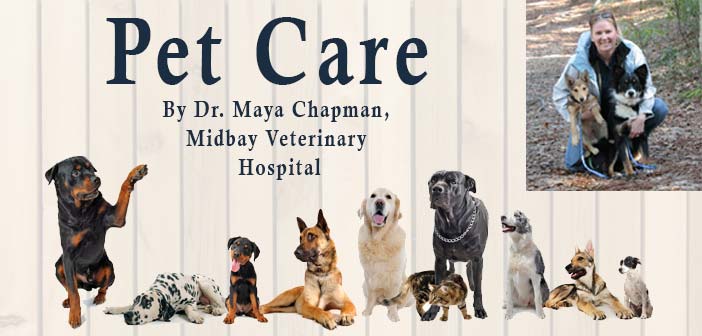While dental health is important all year long, February is officially considered Pet Dental Health Month. Dental disease can often go undetected in our pets which can have a significant impact on their overall health. Pets with dental disease can be in pain, not be as playful, have appetite changes and develop infection within their mouth. Sometimes dental disease can be so severe that infection from the mouth can spread to the heart and the pet can develop life-threatening heart failure.
Daily or even weekly brushing of your pets teeth can help significantly with slowing the progression of dental disease. Your local veterinarian can provide information and help show you how to do this at home. In addition to home brushing of teeth, providing safe chew toys and feeding a dry/crunchy kibble can also be very beneficial for dental health. At your pet’s yearly physical exam your local veterinarian will examine your pet’s mouth and teeth for dental disease and will make recommendations regarding if and when a dental prophylaxis procedure would be needed.
Unfortunately we cannot ask our pet’s to open up and say “ah”, so general anesthesia is absolutely necessary for a proper dental cleaning. While having your pet under anesthesia seems scary, the safest drugs and anesthetics are used. The risk of not having regular dental cleanings performed when your vet recommends is much worse for pet’s overall health and comfort. If you haven’t looked in your pet’s mouth in a while, take the time to lift their lips and look at their back teeth. Our pets should not have bad breath or brown teeth, they should have white teeth. If you are not seeing pearly white teeth, you need to consider taking your pet to your veterinarian for a dental check-up!
Article by Dr. Maya Chapman, Midbay Veterinary Hospital




